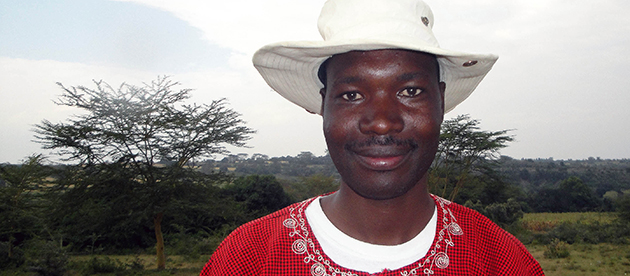In western Kenya’s drought-prone Narok District, Pastor Stanley Shunkuru (pictured) surveys his land. Today it lies barren, the sun burnt leaves of the last of his bean crop swaying in the breeze. And yet he smiles.
The bean season is over and his crop has already been harvested. This season his one acre plot yielded more than 300kg of nutrition-rich beans, a bumper harvest compared to previous yields of a meagre 0.6kg of poor quality mixed beans.
Like many subsistence farmers, Stanley was dogged by limited access to good quality bean seeds, lack of knowledge on good crop, pest and disease management, poor post-harvest storage facilities, underdeveloped business skills and poor links to good buyers.
Today, Stanley has access to the Platform, a network of stakeholders brought together by the Pan-Africa Bean Research Alliance (PABRA), coordinated by the International Centre for Tropical Agriculture (CIAT), and the Kenya Agricultural Research Institute (KARI) to remove the bottlenecks hindering bean production and marketing in Kenya.
Through the Platform, Stanley purchased new high-yielding and drought resistant yellow bean seeds and learnt essential soil management and disease control techniques. He keeps his harvested beans in a well-managed store, he has developed solid business skills and a better understanding of the market, and he has access to buyers who purchase his high quality beans at the going market rate.
“The bean platform is helping to revitalise farming across Africa by removing the bottlenecks along the entire value chain,” said Eliud Birachi, CIATs markets value chain specialist. “It looks at the flow of products and services from the bottom up, from production building up through representation to marketing and policy at the national level.”
The Platform brings together farmers, traders, marketers, community based farmer organisations, research organisations and government representatives. It is part of PABRA’s marketing development activities whose goal is to link small holder farmers.

